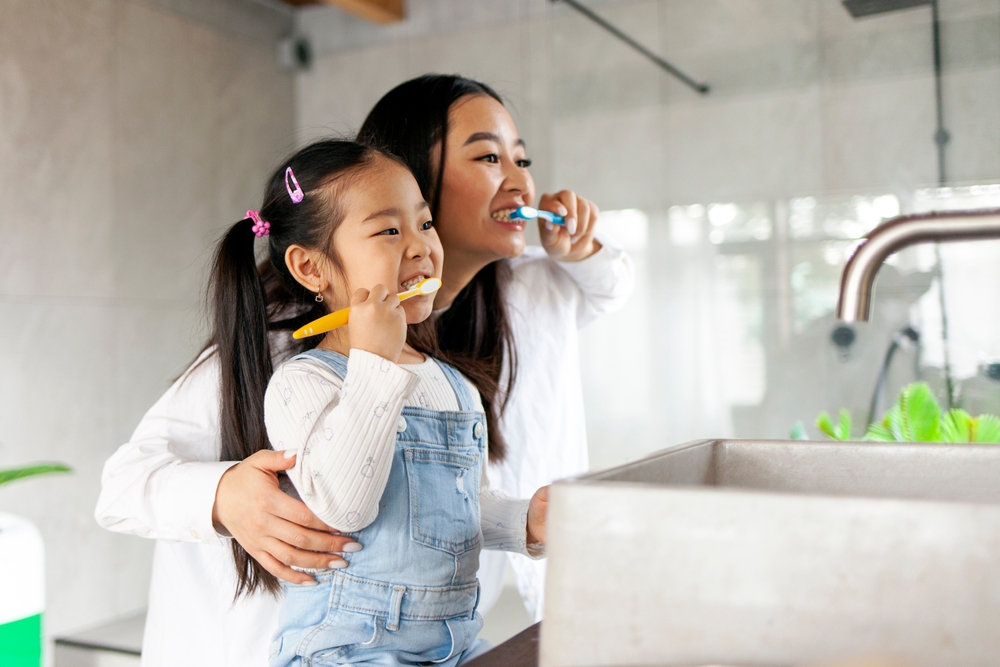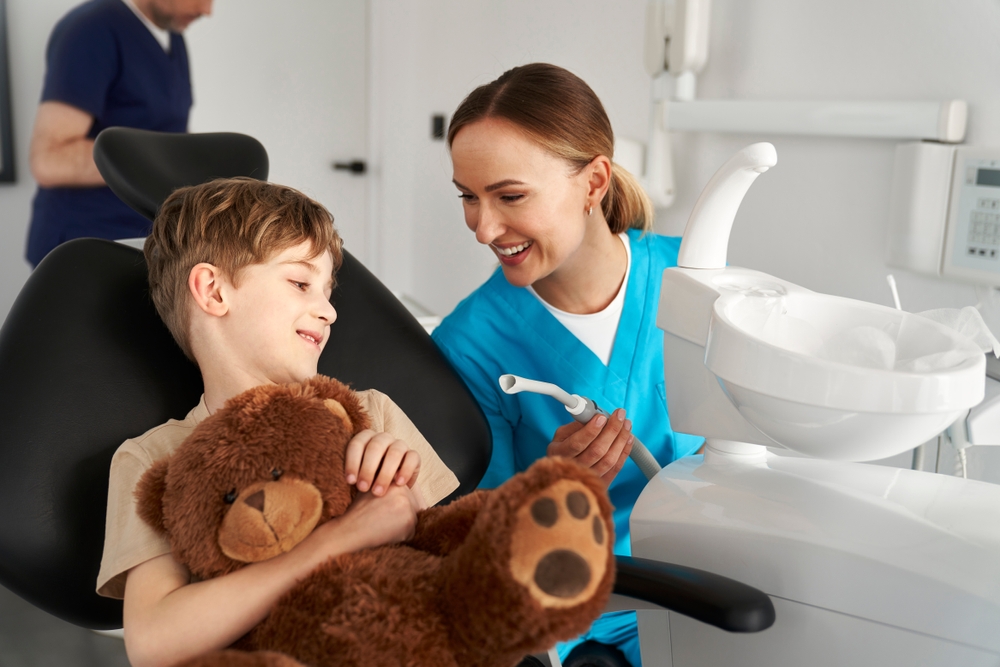New parents often ask, “When should my child have their first dental exam?” The answer, backed by dental experts and organizations like the American Academy of Pediatric Dentistry (AAPD), is simple: your child should visit the dentist within six months of their first tooth erupting or by their first birthday, whichever comes first.
Keep reading for an in-depth look at why first dental exams are so important, what to expect at your child’s first dental exam, and how starting dental visits early can benefit your child’s overall health.
There are several reasons why dental exams are so important for very young children. These reasons include:

Your child’s first visit is important in establishing a healthy dental care routine. Along with regular home oral care, regular dental checkups are vital to maintaining a healthy smile.
Pediatric dentists are specially trained to spot and address common oral health development issues. These issues can include bite misalignment, crowding of incoming teeth, and impacts on long-term oral health, like thumb sucking.
Tooth decay is the most common dental problem among children and can even affect infants. Early dental exams allow a child’s dentist to treat the signs of early decay and prevent future cavities.
A first dental visit is as much for parents as for children. Pediatric dentists can provide guidance on proper brushing techniques, dietary recommendations, and other tips to prevent oral health issues from developing.
A child’s first dental exam is designed to be a gentle and non-intimidating introduction to dental care. Here’s what typically happens during the visit:
Pediatric dental offices focus on creating a welcoming, child-friendly environment to ensure that all their young patients feel at ease.
Once your child is comfortably seated in a child-sized dental chair, their dentist will examine their whole mouth, including teeth, gums, and jaw structure.
Depending on your child’s age and comfort level, their dentist or a hygienist may gently clean their teeth to remove any visible plaque or tartar buildup.
Your child’s dentist may recommend a safe fluoride treatment to strengthen tooth enamel and provide extra protection against decay.
A child’s first dental visit usually includes a consultation about home dental care, proper brushing and flossing, what cavity-causing foods and drinks to avoid, thumb-sucking habits or pacifier use, and how to deal with teething discomfort.
Even very young children can feel nervous about their first trip to the dentist. Here are some of the things you can do to prepare your child for their first dental exam:
Choose a Pediatric Dentist: Pediatric dentists are specially trained to treat children of all ages and are experienced with making first visits comfortable and relaxed.
Talk About Their Exam Beforehand: Using simple language, it can be helpful to explain what to expect during their exam and answer any questions they may have about their visit.
Schedule Wisely: Try to schedule their first exam in the morning or after a nap, when they are well-rested and likely to be in a good mood.
Bring Comfort Items: A favorite toy or blanket can help your child feel more secure and comfortable during their visit.

Children aren’t the only ones who might feel anxious about a first dental exam. Here are some of the common concerns a parent might have:
Pediatric dentists are trained to handle these situations with patience and care. To make the experience as smooth as possible, they may use techniques such as distraction, gentle explanations, and positive reinforcement.
Dentists are there to help, not judge. Cavities in children are extremely common, and a dentist’s focus is to address any existing issues and provide ongoing support for the health of your child’s smile.
Even if your child has yet to develop teeth, the first dental visit is still important. It gives their dentist a chance to check on the development of their gums and mouth and to provide advice on teething and early oral care.

After your child’s first dental exam, their dentist can recommend a schedule for future checkups, which for most children is typically every six months. At home, you should establish a daily oral hygiene routine for your child that includes brushing twice daily, flossing once daily, and encouraging healthy eating habits that promote dental health.
Bringing your child in for their first dental exam within six months of seeing their first tooth or before their first birthday can prevent unwanted tooth decay, identify developmental issues, and foster a positive relationship with oral health care. Early visits to a pediatric dentist can help ensure a lifetime of healthy smiles!
Want to learn more about our Pediatric Dentist out of Miami? Schedule an appointment at Premier Pediatric Dentistry today!





